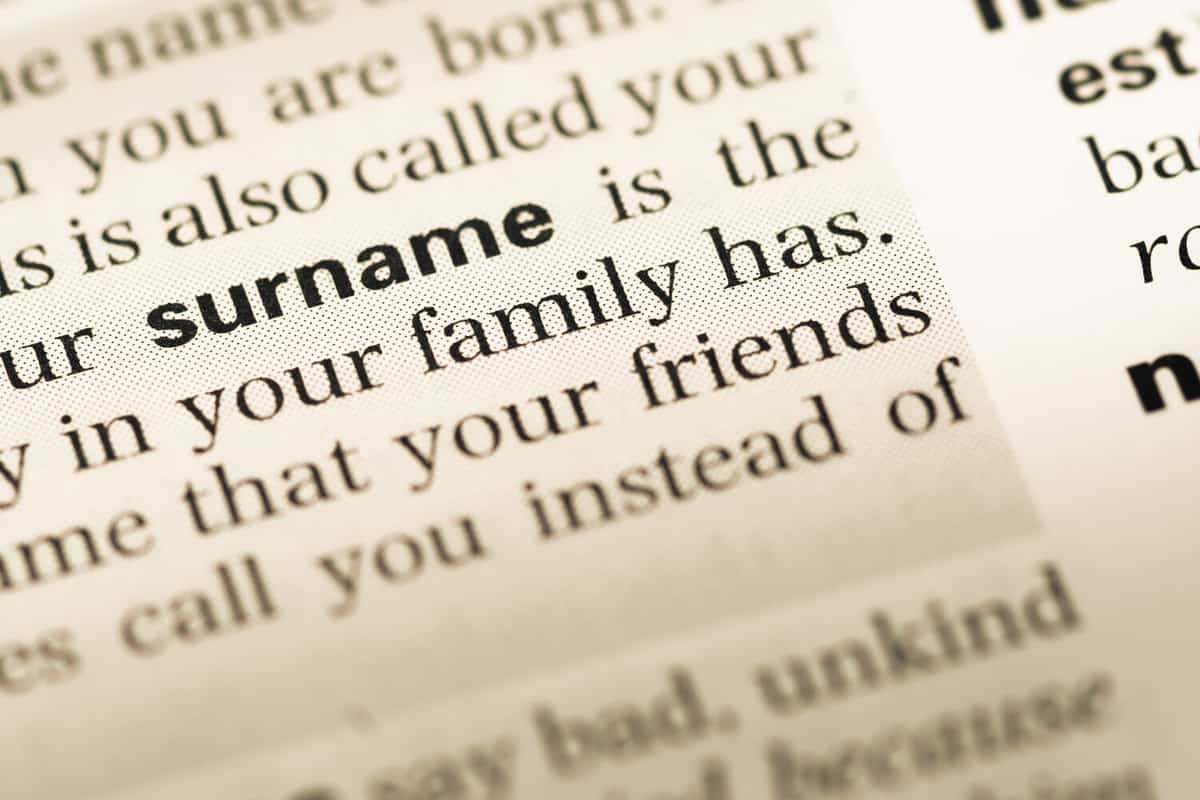There’s so much meaning behind every name, especially when it comes to surnames and all they represent. Family names are passed down from one generation to the next and can reveal part of a family’s history and origin. Not to mention, learning about your surname is one of the simplest ways to understand where your family came from. Sears is a family name that’s most common in the United States. However, it likely originated in England, Ireland, or Germany.
Whether Sears is your own surname or you love learning about the meaning behind different names, keep reading to find out more about the meaning, history, and origin of this strong family name.

Finding out more about your family history can be an incredibly meaningful adventure.
©Monkey Business Images/Shutterstock.com
Origin of the Name Sears
When diving into family history, one of the first treasures to discover is the meaning behind your surname. Just your surname alone can tell you numerous details about your ancestry.
The origin of the family name Sears goes back many generations. Tracing the name back to its original origin isn’t a straightforward path. It may have originated in Ireland and was a version of the Gaelic name “Mac Saoghair.” Sears also may have been a form of the French and Middle English personal name “Saher.” Additionally, it may have come from the name “Sigiheri,” which is Germanic in origin.
The name Sears can also be traced back to ancient English manuscripts as early as the twelfth century. Like most surnames, different variations of this name appeared over time and were changed depending on the dialect.
If Sears is your family’s surname, there’s a lot of information out there about those who may be a part of your family history or family tree. For many people, this information can be an incredible way to engage and connect with long-lost relatives.
Where Is the Name Sears Most Common?
Even though the name Sears originated in Ireland, England, or Germany, it’s not actually most common in any of those countries today. You’re most likely to find the name Sears in the United States. In fact, there are over 34,000 people in the Sears family tree living in the US. There are likely still about 4,000 people in England with this surname and nearly 2,000 in Canada.
However, this wasn’t the case 200 years ago. Before many of the Sears family members traveled to different countries, the name was most commonly found in the United States, UK, Canada, and Scotland in the late 1800s.
Meaning of the Family Name
While the origin of a family name is important, the meaning behind it is also essential information. Surnames are passed on for generations and can provide a meaningful connection to your family’s history and culture.
Sears, in its modern form, may have been derived from multiple different names. One of the meanings of the names is “son of Sayer.” Another possible interpretation is that Sears comes from the name “Saer,” which means carpenter.
While there have been many different systems of naming throughout history, one system gave people a specific name based on their trade. If Sears was a surname created using this naming system, it’s possible the first Sears was a carpenter, since one meaning behind the name is “woodcutter.” Another possibility is the name Sears came from Middle English and was given to someone who recited prose or poetry for a living.
In addition to naming someone for their specific trade, another common naming system was choosing a name based on who you were related to. For example, one of the meanings of Sears is “son of Sayer.” This surname may have been passed on to someone because of their parent’s name.

Many surnames change slightly over time from one generation to the next.
©TungCheung/Shutterstock.com
Alternate Spellings
Surnames often change over time and the original spelling for Sears is likely very different from the current spelling. Some of the variations for this name include:
- Seers
- Seeres
- Sear
- Seare
- Seer
As surnames are passed down from generation to generation, they often change slightly. This is especially true when families move from one country to another.
Was Sears Started By Someone With the Name?
When you hear the name Sears, one of the first things you might think of is the department store with the same name. This large department store, also known by the full name Sears Roebuck, was started by Richard Warren Sears along with Alvah Curtis Roebuck. Sears was originally founded in 1892 by the two businessmen and had a long, successful run before the company initially filed for bankruptcy in 2019.
Even though most of the stores across the United States have closed, there are still about 12 open Sears locations. Richard Warren was a successful businessman but died at the age of 50 in 1914.
Famous Sears
If you’re related to the name Sears, it’s always interesting to find out what famous people may have shared your name. Here’s a list of famous people who also have this surname:
- David Sears was a screenwriter and director.
- Richard Warren Sears was a successful businessman and creator of Sears Roebuck.
- Mary Louise Sears was a well-known scientist and photographer.
- Landis Sears was an American physicist.
- Thomas Dale Sears was an author and publisher.
These are just a handful of the famous people who have the surname Sears, and there are still many other people across the world who share the name.
Final Thoughts
Sears, a name that originally came from Ireland, England, or Germany, is now most common in the United States. This name has several different spelling variations and there are several famous people with this family name as well. Whether Sears is your family name or you’re simply interested in genealogy, we hope this has inspired you to look more into your own family history.
The image featured at the top of this post is ©Monkey Business Images/Shutterstock.com
